Every Sunday morning, we’ll be posting articles and links that are saying something important about church, culture, and mission (or that just made us laugh). Here’s what resonated with us this week on the web:
Church & Theology
Pastor Derek Vreeland blogs about why he doesn’t pray for revival:
I don’t pray for revival, because I came to reject chaotic emotional spontaneity as the de factowork of the Holy Spirit. I celebrate the launching of the church into her mission in the world by the outpouring of the Spirit on the day of Pentecost. I read the New Testament (and the entire Bible) through the lens of the the resurrection of Jesus and the gift of the Spirit. I depend on the power, presence, and activity of the Spirit in all of the operations of the church life. To be honest, I personally depend on the Spirit’s power and presence to form me into a husband and dad that reflects the beauty of Jesus in my family life.
Karen Wilk writes at the V3 Network about the church’s burning bush moment:
Jesus replied, “Love the Lord your God with all your heart and with all your soul and with all your mind.’ This is the first and greatest commandment. And the second is like it: ‘Love your neighbor as yourself.’” (Matthew 22:37-39)
That was the kairos moment, a burning bush for me.
We have to go back to the basics. We have to obey His commandments. If we want to transform lives and communities –if we want to make disciples teaching them to obey everything He commanded… ought we not to start with learning to obey ourselves? We have to go back and love our neighbors. This does not mean “invite them to church” (AKA Sunday morning service), or to programs or rallies, or to say a prayer, or learn our catechism, or hear a sermon.
Logan Gentry writes at the Verge Network about Mark Driscoll and our Misplaced Thirst for Justice:
The end of Ephesians 4 invites us to put away all bitterness, wrath, anger, clamor, slander, along with malice. Six expressions of anger that have come out throughout this process as people have reacted on both sides.
Some have come against Acts 29 and others against Mark Driscoll. This isn’t a political fight, this is the body of Christ. It’s possible to be Pro-Acts 29 and Pro-Mark Driscoll at the same time, longing for restoration, longing for healing, and longing for Christ to be exalted.
News & Views
John Perkins is interviewed at Christianity Today about racism in Ferguson, MO:
Americans take the history of enslavement too lightly because we have benefited from it. And now, we still don’t meet the biblical requirement where God says, “If my people, who are called by my name, will humble themselves and pray and seek my face and turn from their wicked ways, then I will hear from heaven, and I will forgive their sin and will heal their land” (2 Chron. 7:14). We have not repented deeply enough of the sin of racism.
As Christians we know that our problem always is sin. In the case of the shooting in Ferguson, I don’t know who is right because I don’t know who initiated this. But I know that the sin of racism, which goes back to the sin of enslavement, is what makes it escalate so quickly.
Jonathan Merritt interviews Wendy VanderWal-Gritter about her book and asks if there is a third way on the “gay issue”:
RNS: Many have argued of late that there is no middle ground and no third way on the issue of sexuality for Christians. What say you?
WV: If middle ground is seen as some sort of wishy-washy compromise, it is rightly judged as neither upholding deeply held convictions nor working towards the undoing of injustice and oppression. However, if a posture like generous spaciousness is recognized as the narrow path of humbly humanizing the other through intentional listening, then it shouldn’t be so easily dismissed. In a perfect world, we would be free to hold our deepest beliefs and no one would experience marginalization. We should recall our interdependence and, as Desmond Tutu says, remember that if I diminish you – then I diminish myself.
Nish Weiseth weighs in with a powerful post about Robin Williams and the church’s response to depression:
Folks, saying someone is depressed or suicidal because they aren’t praying enough, are self-absorbed, sinful, or don’t have a deep enough faith? It’s abusive. And it needs to stop. Now.
God does heal, absolutely He does. But sometimes, healing happens through good doctors, counselors, practitioners, and yes, medicine. God’s grace can look like a sliver of light on the bathroom floor, but it can also look like a life-changing counseling session or the right combination of drugs to regulate your brain chemistry.
On The Missio Blog
We continued our brand new series on Biblical Unity this week:
Schismatics Anonymous, by Fr. Gregory Crosthwait.
Learning of Jesus’ Motherhood from Dame Julian, by Len Hjalmarson.
Can the Weak and Strong Get Along? by Ty Grigg.
Unity Within Diversity, by Matt Ingalls.
A Christian Response to Iraq and ISIS (Islamic State), by Karina Kreminski.
Diversity is not Enough, by Ebony Adedayo.
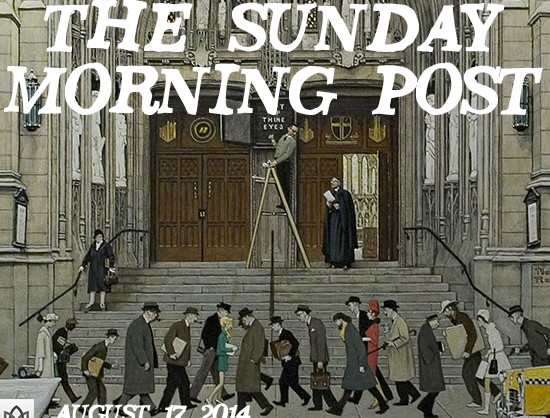

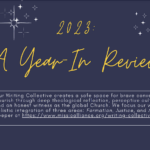



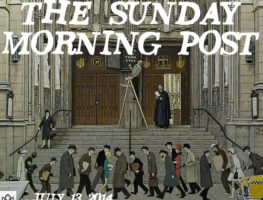
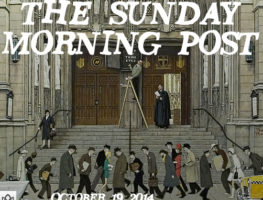

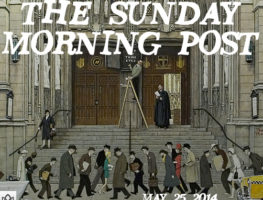
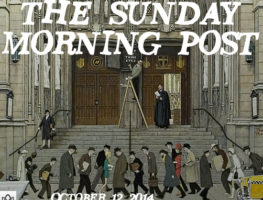


Missio Alliance Comment Policy
The Missio Alliance Writing Collectives exist as a ministry of writing to resource theological practitioners for mission. From our Leading Voices to our regular Writing Team and those invited to publish with us as Community Voices, we are creating a space for thoughtful engagement of critical issues and questions facing the North American Church in God’s mission. This sort of thoughtful engagement is something that we seek to engender not only in our publishing, but in conversations that unfold as a result in the comment section of our articles.
Unfortunately, because of the relational distance introduced by online communication, “thoughtful engagement” and “comment sections” seldom go hand in hand. At the same time, censorship of comments by those who disagree with points made by authors, whose anger or limited perspective taints their words, or who simply feel the need to express their own opinion on a topic without any meaningful engagement with the article or comment in question can mask an important window into the true state of Christian discourse. As such, Missio Alliance sets forth the following suggestions for those who wish to engage in conversation around our writing:
1. Seek to understand the author’s intent.
If you disagree with something the an author said, consider framing your response as, “I hear you as saying _________. Am I understanding you correctly? If so, here’s why I disagree. _____________.
2. Seek to make your own voice heard.
We deeply desire and value the voice and perspective of our readers. However you may react to an article we publish or a fellow commenter, we encourage you to set forth that reaction is the most constructive way possible. Use your voice and perspective to move conversation forward rather than shut it down.
3. Share your story.
One of our favorite tenants is that “an enemy is someone whose story we haven’t heard.” Very often disagreements and rants are the result of people talking past rather than to one another. Everyone’s perspective is intimately bound up with their own stories – their contexts and experiences. We encourage you to couch your comments in whatever aspect of your own story might help others understand where you are coming from.
In view of those suggestions for shaping conversation on our site and in an effort to curate a hospitable space of open conversation, Missio Alliance may delete comments and/or ban users who show no regard for constructive engagement, especially those whose comments are easily construed as trolling, threatening, or abusive.